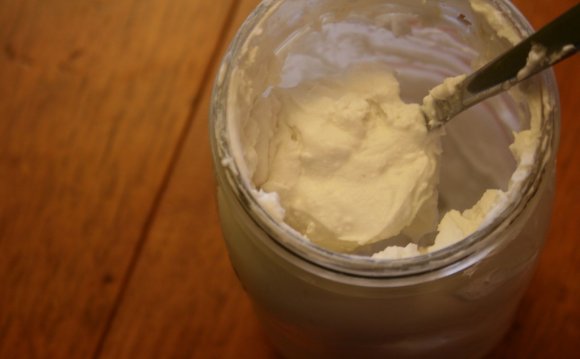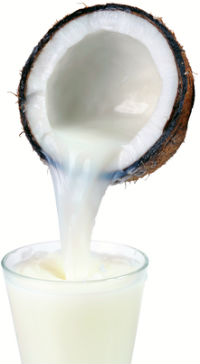
 Kefir is a healthy and delicious cultured milk drink, similar to yogurt, that has been enjoyed for centuries throughout Russia, Eastern Europe, the Middle East, and even certain parts of Asia. Much of the Western world is just beginning to discover the benefits of this amazing drink.
Kefir is a healthy and delicious cultured milk drink, similar to yogurt, that has been enjoyed for centuries throughout Russia, Eastern Europe, the Middle East, and even certain parts of Asia. Much of the Western world is just beginning to discover the benefits of this amazing drink.
Depending on area of origin, most recipes call for either cow or goat’s milk to be used as a base for the kefir cultures to ferment. For vegans and people who are sensitive to dairy, coconut milk also works very well.
Like yogurt and other probiotic foods, kefir that generally requires a starter culture. Because each culture is a unique living ecosystem and reacts differently to different environmental factors, the subtle differences between one batch and the next can be quite considerable.
In the case of kefir, new cultures are started using specially prepared, fermented kefir grains. These “grains” are a mixture of yeast and bacteria built-up around the remnants of sugar, protein and fat of what was formally cereal grain. While this may not sound particularly appetizing, especially if at-home fermentation of dairy hasn’t been a common practice for you, it’s actually more robust and easier to work with than most yogurt starter cultures.
Making Organic Coconut Milk Kefir at Home
Ingredients:
- 1 Quart Jar (Glass)
- 1 Wooden Mixing Spoon
- 1 Quart of Undiluted Sweetened Organic Coconut Milk
- 2 Tablespoons of organic live Kefir Grains (Available online)
Directions:
After thoroughly cleaning and drying the glass jar, add kefir grains and fill jar with freshly opened coconut milk. Mix slowly with wooden spoon. Cover jar with a loose-fitting cloth or paper towel. Set it aside and try to be patient. (It usually takes somewhere between 12 and 36 hours or so for the kefir culture to develop.)
After letting the mixture sit for about 12 hours, begin checking it every few hours. The coconut milk will thicken slightly as the kefir grains act on it. You can leave the grains in longer for a thicker, more sour kefir, but be careful not to overdo it.
Carefully remove all the kefir grains from your new kefir coconut milk and place milk in the refrigerator. Don’t be surprised if it continues to thicken as it cools. Enjoy it as it is, or let it warm back up to room temperature if you prefer to drink it the traditional way instead.
Storing Kefir Grains for Future Use:
One of the best things about making your own kefir at home is the sustainability. Once you get started, it’s easy to continue making fresh kefir whenever you want. Simply store the leftover grains and a small amount of milk covered in the refrigerator until you’re ready to make another batch.
Has anybody here made their own coconut milk kefir? If so, we’d love to hear your thoughts on our kefir recipe!
†Results may vary. Information and statements made are for education purposes and are not intended to replace the advice of your doctor. Global Healing Center does not dispense medical advice, prescribe, or diagnose illness. The views and nutritional advice expressed by Global Healing Center are not intended to be a substitute for conventional medical service. If you have a severe medical condition or health concern, see your physician.
YOU MIGHT ALSO LIKE











